
In northwest Nigeria last year, Deborah Yakubu, a college sophomore, was stoned and beaten to death and her body was publicly burned, after she ‘blasphemed’ against Islam in a WhatsApp group. Usman Buda, a 30-year-old butcher, was stoned to death by a mob in June 2023, after he was accused of blasphemy in the same region. Mubarak Bala, President of the Humanist Association of Nigeria (HAN), was arrested over three years ago in the north-central city of Kaduna after he posted ‘sacrilegious’ statements on Facebook. He remains in jail today, in the Counter-Terrorism Unit of Abuja Prison; their main foe in inter-jail soccer matches, he tells me amusedly, is the Armed Robbery Unit.
Atheists in Nigeria are in constant danger of losing their jobs, families, freedom, human rights, and their very lives. Belief disagreements in this nation of around 220 million (and growing) frequently explode into violence: over 6,000 Christians were hacked to death in a recent 15-month span, and the bloody trend seems to be escalating.
Security is needed. What’s the solution?
Humanist Mutual Aid Network (HuMAN), a not-for-profit organisation based in the US, has responded to this emergency by launching three ‘Safe Houses’ in Nigeria to provide sanctuary to non-believers. Abuja Safe House, Maiduguri Safe House, and Minna Safe House are secular oases for groups of 5-7 individuals, but the structure and goals of each heretic home vary widely.
Abuja Safe House (also known as ‘KaZoHa’) is now the irreligious residence of five women, one of whom is Amina Ahmed, Mubarak Bala’s wife. The couple are pictured in the photo at the beginning of this article, which was taken in late 2019 when the sanctuary was launched, just a few months before the arrest of Bala, who was its director. There is also a three-year-old boy at the Abuja Safe House: Sodangi, Mubarak and Amina’s son. Amina and the rest of the freethinking quintet survive financially with proceeds from their Fruit Juice Bar, funded by HuMAN. They also manage an online community centre for Mubarak Bala’s international support, and they guarantee shelter to atheists and LGBTQ people who are fleeing or hiding from persecution.
Abuja Safe House residents are state-protected because Abuja, the nation’s capital, strives to be secular and tolerant. The godless group is also out of the closet, and comfortably active on social media. Any drawbacks? Yes. They do not own the property: it is leased annually, the fee paid by Humanists International (HI), which also provides legal aid to Mubarak Bala.
Bala maintains near-daily contact with Abuja Safe House. He envisions its future goals as: ‘1) financial independence, 2) acquisition of a permanent non-rental residence, 3) expansion to accommodate more humanists at risk, 4) establishment of Abuja Humanist Primary & Secondary Schools for kids – like Tai Solarin’s Mayflower School.’

Maiduguri Safe House is a completely different establishment because it is situated in the Boko Haram-infested northeastern state of Borno, where publicly declaring oneself as an ex-Muslim would be suicidal. The six residents here are all young men, living together in happy liberation from suffocating Islamic rituals and the narrow eyes of suspicious neighbours.
On their HuMAN webpage they have their faces blurred, they are all anonymous and the safe house itself is hidden behind a tall brick wall to guarantee safety from neighbours suspicious of their lack of conformity with Islamic ritual. On the plus side, the Maiduguri atheists own their property, purchased partly with funds generated from their World Peace Internet Café (funded by HuMAN), an ice cream factory (also HuMAN-funded), and a still-in-progress campaign to pay for the roof.

Maiduguri Safe House is one hundred per cent male, high-security, closeted, and financially stable. This is in sharp contrast to the female, out-of-the-closet, state-protected, but economically tenuous abode of Abuja Safe House. According to ‘SMK’, a resident here, the top goals of this safe house are offering refuge to humanists who are physically threatened because they have abandoned religion; providing safety to ‘Almajiri’ (children abandoned by their parents at Islamic centres); creating strong unity between local humanists by living together; and teaching one another vocational skills which they can use to become economically self-reliant.
Minna Safe House, in Niger State, is a third option that expresses HuMAN’s most idealistic vision. The seven housemates here include men, women and children with various stories: they may be LGBTQ people, ex-Muslims or ex-Christians, well-educated or illiterate, but they are all bound together by their renunciation of blind faith. As in Abuja, the Minna Safe House residents are out-and-proud atheists, with their smiling faces posted on HuMAN’s website, and their namesakes and occupations listed. As in Maiduguri, the Minna residents enjoy home ownership: the four-bedroom unit was inherited by HuMAN’s Africa Director, Saliu Olumide Saheed. Like Abuja and Maiduguri, the Minna Safe House gains income from its HuMAN-funded businesses: a grocery store (co-funded by Atheism United) and a barber shop.
The ambitions of Minna Safe House exceed those of the other two sanctuaries, though, because it aims to also be a beloved community centre. Future plans include a community garden, with produce shared with needy locals in weekly community meals. Additionally, its Humanist Preparatory School is generating enthusiastic local support; the school will emphasise English learning, because that skill is highly desirable for Nigerian employees. Minna Safe House is also setting up a Humanist Clinic, organised by a housemate who is a trained healthcare worker, to provide first aid assistance and medicine to the local community. The clinic also plans to serve nearby refugee camps and rural villages; last year it delivered interventions for malaria, cholera, polio, hepatitis, HIV, scabies and dental care.

Saliu Olumide, who serves as the Minna Safe House director, strives to operate the sanctuary on the basis of humanist and mutual aid values. ‘We are creating an egalitarian community,’ he says, ‘where everyone works to contribute to the common good of one another. What we have, we will use together and the excess will be stored for rainy days. No one will be left out, we will attempt to even out the system of greed that’s made life difficult for the oppressed and rural in Nigeria. It is our ultimate goal to succeed until we are role models for anyone who wants to create an active, successful community.’
Maiduguri Safe House also conducts multiple humanitarian projects, focused primarily on the Almajiri. Last winter, with HuMAN funding, the Maiduguri crew built a wood-and-aluminum-siding structure that protected 120 Almajiri from the seasonal wet and cold, and it supplied them with wool blankets, mosquito nets, and free computer classes. With the help of HuMAN funding, they have also been able to feed widows, provide medical assistance to refugees, help widows start sustainability projects, and operate an internet café and an ice cream factory.

The Humanist Mutual Aid Network (previously known as the Humanist Global Charity, and before that, as the Brighter Brains Institute) is not solely dedicated to providing safe houses in Nigeria. It also supports its mutual aid partners in Chad, Zambia, Uganda, India, Nepal, Bangladesh, Myanmar, the Philippines and the USA (Appalachia). Many of these efforts are collaborations with other groups like Atheist Republic, Burmese Atheists and the Humanist Alliance Philippines, International.
Is Nigeria doomed to always be dangerous to freethinkers? Safety varies geographically – the Muslim north is more dangerous than the Christian south – but ostracism exists everywhere. Atheists are often disowned and disinherited by their families, and barred from schools and employment. Safe Houses (on the HuMAN model) can simultaneously deliver freedom of belief, freedom of sexual preference, and freedom from poverty, prejudice and violence. Moreover, if they deliver humanitarian services to their neighbours, atheists will be regarded as, so to speak, ‘good without god.’
Perhaps Safe Houses can be set up throughout Nigeria, running from north to south, to serve as an ‘underground railroad’ for non-believers? Mubarak Bala would like to see many more established – perhaps one in every Nigerian state.
Bala hopes he will be released from prison soon. Whenever that happens, his initial plan ‘is to unite all the secular groups in Nigeria, such as Lagos Humanist Assembly, Atheist Society of Nigeria, Hausa Atheists, Northern Nigerian Humanist Association, Tarok Thinkers, Proud Atheists. I hope to bring them all under one banner, under HAN or ASN or Nigeria Secular Movement.’
After that, his long-term goal is ‘to lead Nigeria politically, but I have to adjust to the new reality, that I am too lone a voice, too vulnerable to dare the standards. I need to be diplomatic now for our community to be safe. I hope this new strategy works. Of course, my eventual aim is to be in a position to end religion permanently, without being killed in the process.’
Further Freethinker articles on Nigeria:
The price of criticising Islam in northern Nigeria: imprisonment or death
Secularism in Nigeria: can it succeed?
Mubarak Bala: update on a ‘blasphemer’ in Nigeria
Enjoy this article? Subscribe to our free fortnightly newsletter for the latest updates on freethought. Or make a donation to support our work into the future.


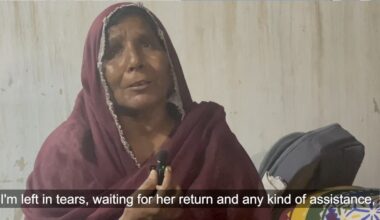
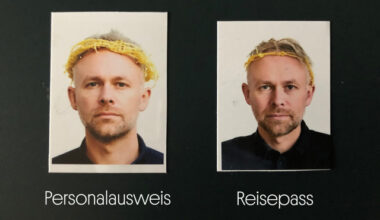
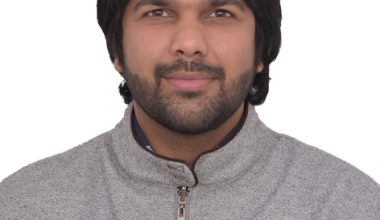
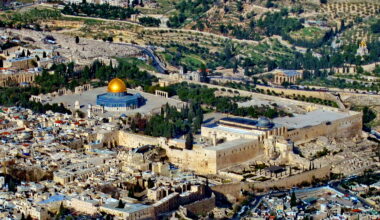
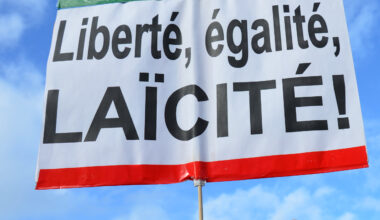
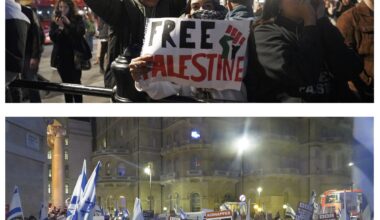
Your email address will not be published. Comments are subject to our Community Guidelines. Required fields are marked *
Donate